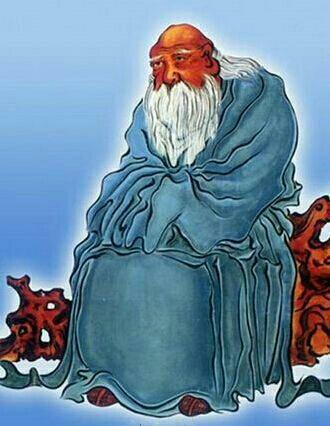The eldest birthday star who lived for 880 years - Peng Zu
Peng Zu, formerly known as Qi Hao (篯铿), was the eighth grandson of the Yellow Emperor. Through the Yao, Shun, Xia, and Shang dynasties, he served as shouzang shi, xian dafu, zhuxia shi, hou bo, etc. During the reign of Emperor Yao, he was enfeoffed at Pengdi (彭地, in present-day Xuzhou, Jiangsu Province), after which he established the State of Great Peng, with his descendants taking the state as his clan. Legend has it that he lived to be 880 years old and was known as the longest-lived old man in China.

According to the "Biography of Liexian", "Peng Zuren, Yin Dafuye, surnamed 篯名鏗, grandson of Emperor Huan, middle son of the Lu Finale clan, lived for more than 800 years from summer to the end of Yin..." In the "Classic of Mountains and Seas", "Records of History", "Huayang Guozhi" and other documents, it is recorded that Peng Zu did have his own person, and experienced the Xia, Shang, and Three Dynasties for more than 800 years.
Peng Zu is the longest-lived old man in China, the founder of Chinese health culture, the grandfather of Chinese kitchen, the originator of Chinese martial arts culture, and the earliest master of sexology in Chinese history.
Peng Zu had a bad fate from childhood, and when he was born, his mother had difficulty giving birth, and he was helpless, so he could only open his ribs and remove the child, which was the most advanced caesarean section operation at that time. After Peng Zu was born, he unfortunately lost his mother at the age of three. The teenager began to live in the western region, seeking survival in hardship and hardship, during which he worshiped Qingjing and Wanqiu as teachers, and did his best to maintain health and fitness secrets. After growing up, he returned from the Western Regions, and happened to encounter Emperor Yao who was terminally ill, and Peng Zu boiled soup to offer, and Emperor Yao recovered from his illness. During the reign of Emperor Yao, in order to popularize the healthy physique of tens of millions of toiling people, Peng Zu pioneered cooking techniques, room techniques, and guidance techniques, and taught them widely. Emperor Yao, grateful for Peng Zu's contribution, enfeoffed Dapeng Mountain to him, in the area of present-day Xuzhou City, Jiangsu Province, where Peng Zu founded the Great Peng State.
As the saying goes, everything is difficult at the beginning. Peng Zu led the crowd to dig wells to change water, build houses and live together, build stones and build cities, control floods, develop production, and defend Dapeng against foreign insults, and made indelible contributions to the development and construction of Xuzhou and the happiness of the people. The people of Xuzhou have been grateful to Peng Zu for generations, and there are still Peng Zu Temple, Peng Zu Garden, Peng Zu Ancestral Hall, Peng Zu Lou, Peng Zu Shou Shi, Peng Zu Jing, Peng Zu Tomb and so on in Xuzhou City.
Peng Zu had a great influence on The history of China, being an immortal in people's minds and becoming a figure in mythology. There are many legends about his deeds, among which the unique is the longevity technique. Shi Zai Pengzu lived to be eight hundred and eighty years old, and its authenticity is really a relatively large doubt, so how much credibility it has, the author does not care for the time being. At present, many historians have made two speculations, speculating one: according to the ancient "small flower armor" method of age-keeping, taking sixty days as a year at that time, eight hundred and eighty years old is equivalent to more than one hundred and forty years old today; speculation two: According to experts, the so-called pengzu shou is eight hundred and eighty years old, which is actually the number of years of existence of the Great Peng Kingdom.
From ancient times to the present, it is said that Peng Zu lived for eight hundred and eighty years. Although the rumors may not be true, in the history of our country, Peng Zu is indeed a strange person who is good at health maintenance and longevity. We don't need to argue about how many years Peng Zu lived, it doesn't matter, but the beautiful hope that future generations will aspire to longevity.